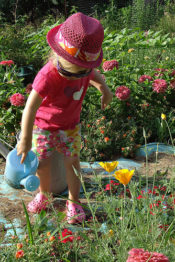 Quality Education in the Heartland
Quality Education in the Heartland Bay Area Teacher Training
Bay Area Teacher Training Caring for All Stages of Life
Caring for All Stages of Life Immersive Academics and Arts
Immersive Academics and Arts Apply Today: New Cohort Starts Nov. 2025
Apply Today: New Cohort Starts Nov. 2025 Roadmap to Literacy Books & Courses
Roadmap to Literacy Books & Courses Waldorf-inspired Homeschool Curriculum
Waldorf-inspired Homeschool Curriculum Jamie York Books, Resources, Workshops
Jamie York Books, Resources, Workshops Great books for Waldorf Teachers & Families
Great books for Waldorf Teachers & Families ~ Ensoul Your World With Color ~
~ Ensoul Your World With Color ~
 Resiliency and the Art of Education
Resiliency and the Art of Education Transforming Voices Worldwide
Transforming Voices Worldwide Association for a Healing Education
Association for a Healing Education The Journey is Everything
The Journey is Everything Everything a Teacher Needs
Everything a Teacher Needs Bringing Love to Learning for a Lifetime
Bringing Love to Learning for a Lifetime Flexible preparation for your new grade
Flexible preparation for your new grade Middle School Science With Roberto Trostli
Middle School Science With Roberto Trostli Space speaks. Its language is movement.
Space speaks. Its language is movement. Train to Teach in Seattle
Train to Teach in Seattle Summer Programs - Culminating Class Trips
Summer Programs - Culminating Class Trips Full-Time Teacher Education
Full-Time Teacher Education Waldorf Training in Australia
Waldorf Training in Australia
Would you like to become a sponsor?
Waldorf News

Saving Childhood: Basic Schools and the Future of Waldorf Education
October 22, 2019
At home: family structures are breaking down, stressed parents, unemployment, poverty, children sitting alone in front of the screen, computer games. Even the rich people’s children are poor! Let us take some necessary steps to preserve childhood! Let us give our children at least ten years of childhood! Only this way will they be able to have enough fantasy to reshape life on earth in a new and better way when they become adults. We’re dealing with the earth and the youth forces of the earth. The whole idea of “School” must be re-thought anew! Schools, where children can live, play and work in such a way that their natural gift of imagination can turn into creative fantasy. We need schools where they can live without pressure or fear, thus being happy while they learn and grow healthy. More »

I Won’t Buy My Teenagers Smartphones: Denying a teen a smartphone in 2019 is a tough decision, and one that requires an organized and impenetrable defense.
September 24, 2019
My 14-year-old son just started high school, and he does not have his own smartphone. When I tell people this, I get the same face I imagine I would if I said that I hadn’t fed him for several days. My son is fine, though—really. I don’t think he’s ever been lost, stranded, or even inconvenienced by his lack of that quintessential 21st-century accessory. My son and his brother, one year his junior, are not living in the Dark Ages. They each have a tablet, loaded with a souped-up internet filter and time restrictions, that they use at home. My boys are not like the kid I met in college who had grown up without TV and didn’t appreciate the cultural relevancy of Bo and Luke Duke or George Jefferson. My kids readily quote Ron Swanson and Dwight Schrute. They text, they Snap—but only on weekends and a little bit this past summer. What sets them apart from most of their friends is that neither of them owns a portable device connected to the internet that can be hidden in the depths of their baggy Under Armour shorts. More »

Waldorf education in Egypt: "Everyone is amazed that such a thing is possible."
September 23, 2019
In Egypt there is compulsory schooling, but only about 1/3 of the children go to school. Seventy children sit in a class, the teacher stands in front with the stick in his hand, children in the chorus roar, and are hit if necessary. The educational level is one of the lowest in the world. At the age of 3 or 4 the children are sent to kindergarten. There they sit on small chairs for up to four hours with their arms crossed, say ABC’s or English vocabulary without ceasing, or watch TV. They have to know Arabic and English letters before they go to the 1st grade. Some of the frustrated teachers we talk to want to try something new, something where the relationship between teacher and student is assumed, where learning is fun, where the child is respected. More »

The Future of Waldorf Education: Beyond 100
September 17, 2019
One can wonder: Where will new growth occur in the future? When giving what I was told was the first-ever Waldorf talk in Amman, Jordan last winter, I had a sense that something is dawning in the Middle East. The question I am left with is, how we can best learn from each other across continents, cultures, and languages? With our present-day communication tools, are we adapting fast enough, and can we form more of an international Waldorf learning community? More »
FREE Workshop with Kim John Payne: “Emotional Self-Regulation for Parents”
September 7, 2019
Simplicity Parenting author, Kim John Payne, is holding a new free workshop next week in celebration of the release of his newest book, “Being at Your Best When Your Kids Are at Their Worst: Practical Compassion in Parenting.” Emotional self-regulation is such an important topic for parents, and what better time to talk about it than at the beginning of a new school year. The workshop begins Monday, September 9th, and it's an online, video/audio-based workshop, so there’s no set time for the sessions. You can watch/listen whenever it works for you. More »
 Recent Jobs
Recent Jobs
View more jobs »
 Newsletter Archive
Newsletter Archive
 Join the Mailing List!
Join the Mailing List!
Stay Connected…
Each week receive the Waldorf News Weekly Update, full of news, events, and more. Keep abreast of what's happening with Waldorf education.
 RSS Feeds
RSS Feeds